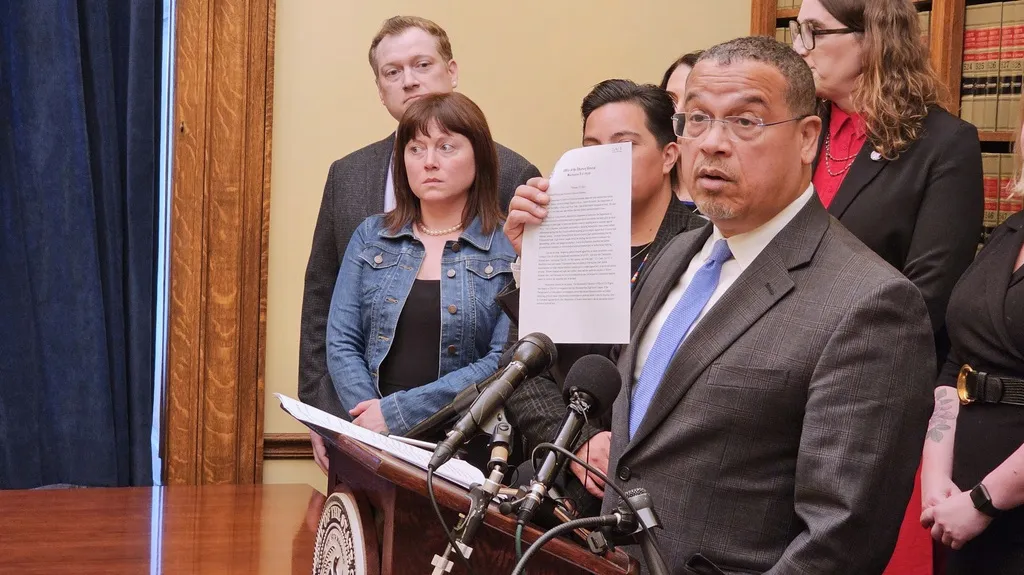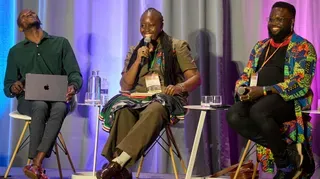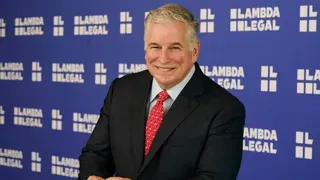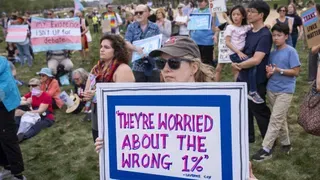March 11, 2011
Maryland Marriage Vote Possible Before the Weekend
Kilian Melloy READ TIME: 6 MIN.
Lawmakers in Maryland addressed amendments to a bill that would introduce marriage equality for the state's gay and lesbian families on March 9. A final vote is expected soon, perhaps as early as March 11.
Meantime, one of the lawmakers deliberating the bill has come out as gay. His disclosure ups the total of openly gay Maryland state legislators to eight.
Among the amendments considered by lawmakers was one that would have specified that if the bill passed, the new marriage parity rights for gays would be put to a popular vote, reported CBS Baltimore on March 9.
Anti-gay lawmakers have insisted that the bill, if passed, would inevitably come before voters at the ballot box. Voters in 30 states have approved changes to state constitutions that bar gay and lesbian families from accessing marriage rights. In some cases, states have barred other forms of legal recognition, such as civil unions and domestic partnerships, as well.
In two states, California and Maine, voters repealed laws that granted marriage equality to same-sex couples. Families in California lost marriage rights in 2008, six months after a court decision allowed same-sex weddings to commence. In the course of those six months, more than 18,000 same-sex couples wed. An extraordinarily expensive and deeply divisive campaign to repeal marriage rights by passing Proposition 8 and amending the California constitution ensued, with the anti-gay ballot measure narrowly passing. A later court decision upheld the marriages of the 18,000 families that had availed themselves of the temporary freedom to marry. Proposition 8 was later overturned in a federal court. That verdict is currently under appeal.
In Maine, voters repealed a marriage equality law in 2009, before it could take effect. Anti-gay group the National Organization for Marriage (NOM) was a significant contributor in both instances.
Maryland lawmakers on a State House panel approved the bill on March 4, after a delay of several days that was precipitated when two state delegates, Jill Carter and Tiffany Alston, failed to appear for a vote on March 1.
The bill in question had already passed the state senate, and Maryland Gov. Martin O'Malley called for the bill to be approved by the house and sent to his desk for his signature.
A March 4 CBS Baltimore.com story said that some delegates in the house were "stalling." Earlier in the week, Del. Carter reportedly held the bill "hostage," looking for attention for legislative issues she thought should be addressed first. Advocate.com said that Carter indicated on March 1 that she would vote against the bill unless funds for schools were restored and a bill on child custody were passed. By the following day, however, Carter was telling the media that she was "satisfied" her concerns had been addressed and was prepared to back the bill.
"I was always ready to vote for the bill," Carter said on March 2. "There were some things that I wanted to have discussed and I knew if we took the vote first, they wouldn't be discussed. They were discussed. I was happy. I'm content and ready to vote for the bill."
Del. Alston also stalled on the vote, despite having said that she believed "all people should be treated equally regardless of their sexual orientation." But Alston--who co-sponsored the marriage equality bill--began to indicate that she would prefer to see gay and lesbian families receive civil unions instead of state-level marriage parity.
Delegates on the House Judiciary Committee needed to approve the bill before the full House membership could have their say. Del. Like Clippinger predicted that the bill had the votes it need to come before the full House, but foes of gay and lesbian family equality trumpeted the roller-coaster ride as evidence that the bill did not have enough support to emerge from the House Judiciary Committee.
"Clearly, there's been an attempt now for the last three days to vote this bill on multiple occasions, and it keeps coming up short," said Del. Don Dwyer. "That's a clear indication that the votes keep disappearing that they think they have."
Governor Martin O'Malley--who has said that he will sign the bill if it reaches his desk--went so far as to suggest that the issue not be decided by lawmakers, but go straight to voters. "Ultimately this is going to probably go to the people on referendum anyway," said O'Malley, referring to threats from anti-gay groups like the NOM that if the measure becomes law, they will mount a Proposition 8-style referendum to yank marriage equality from gays once again.
Another delegate on the House Judiciary Committee, Sam Arora, echoed the governor's sentiments when he announced that after a period of indecision, he would back the bill, reported Baltimore new channel WBAL-TV on March 4.
Marriage: The 'Gold Standard'
"Marriage provides a critical safety net for families," stated Equality Maryland's Morgan Meneses-Sheets after the vote. "With this favorable vote from the committee on SB 116, we're one step closer to providing not only the same benefits, but also the respect and dignity to the thousands of gay and lesbian couples in Maryland.
"From every corner of the state, Marylanders have made it clear that a majority favor marriage equality," Meneses-Sheets continued. "We remain cautiously optimistic about the upcoming vote on the House floor. Equality Maryland is counting on every person who supports ending the exclusion of loving same sex couples from marriage to contact their delegates and be counted in this fight to bring equality to the Free State."
The next vote, which includes the full membership of the house, may send the bill to the governor's desk--or else scuttle it. Proponents believe the bill has a good chance, although the vote is likely to be close.
Indeed, it was the probably closeness of the eventual vote that some used as a rationale for seeking an amendment specifying that the new law would automatically go before voters, CBS Baltimore reported.
"When it's this close, who are we-188 lawmakers in Annapolis-to say we've got it right and not listen to what the people have to offer?" Democratic Del. Jay Walker said.
Another Democrat also chimed in, although to argue that if the bill were headed for a vote in any case, such an amendment would be unnecessary.
"It will be petitioned, they have the conviction and courage of their conviction," said Del. Luiz Simmons. "Let us have the conviction and courage of our conviction and vote the bill before us up or down and let the people know where we stand."
The bill was left without amendments, the article said. Delegates will vote on the bill in its amendment-free form.
One Maryland House delegate, Peter Murphy, a Democrat, came out as gay as deliberations on the measure continued, reported the Washington Blade on March 9.
"As I have said all along, I think it's a strong civil rights bill," Murphy told the media. "I think it's a fair bill because it also addresses the religious issue and doesn't require any religious organization to practice something that goes against their teachings."
Murphy, who is a divorced father and grandfather, said he had never concealed his sexual orientation. "I have never denied it," the lawmaker asserted. "I just presumed people knew."
Murphy said that he was not particularly interested in joining the state's LGBT Caucus. "I just come here to do my work," Murphy told the Blade. "I'm not a big social person. I've never felt any pressure from anyone to be anything but what I am."
The article noted that with Murphy's public disclosure, there are now eight openly gay state lawmakers in office.
"It's still a courageous thing for public officials who are gay or lesbian to serve openly and honestly, so we applaud Delegate Murphy's decision," said the Victory Fund's Denis Dison. "As we've seen during the current debate over marriage, out lawmakers can have a tremendous impact on both their colleagues and their constituents, and the Maryland LGBT Caucus has certainly been at the center of this fight.
"With eight openly gay and lesbian members of the legislature, Maryland now has the largest LGBT caucus of state legislators in the country," added Dison.
Kilian Melloy serves as EDGE Media Network's Associate Arts Editor and Staff Contributor. His professional memberships include the National Lesbian & Gay Journalists Association, the Boston Online Film Critics Association, The Gay and Lesbian Entertainment Critics Association, and the Boston Theater Critics Association's Elliot Norton Awards Committee.





